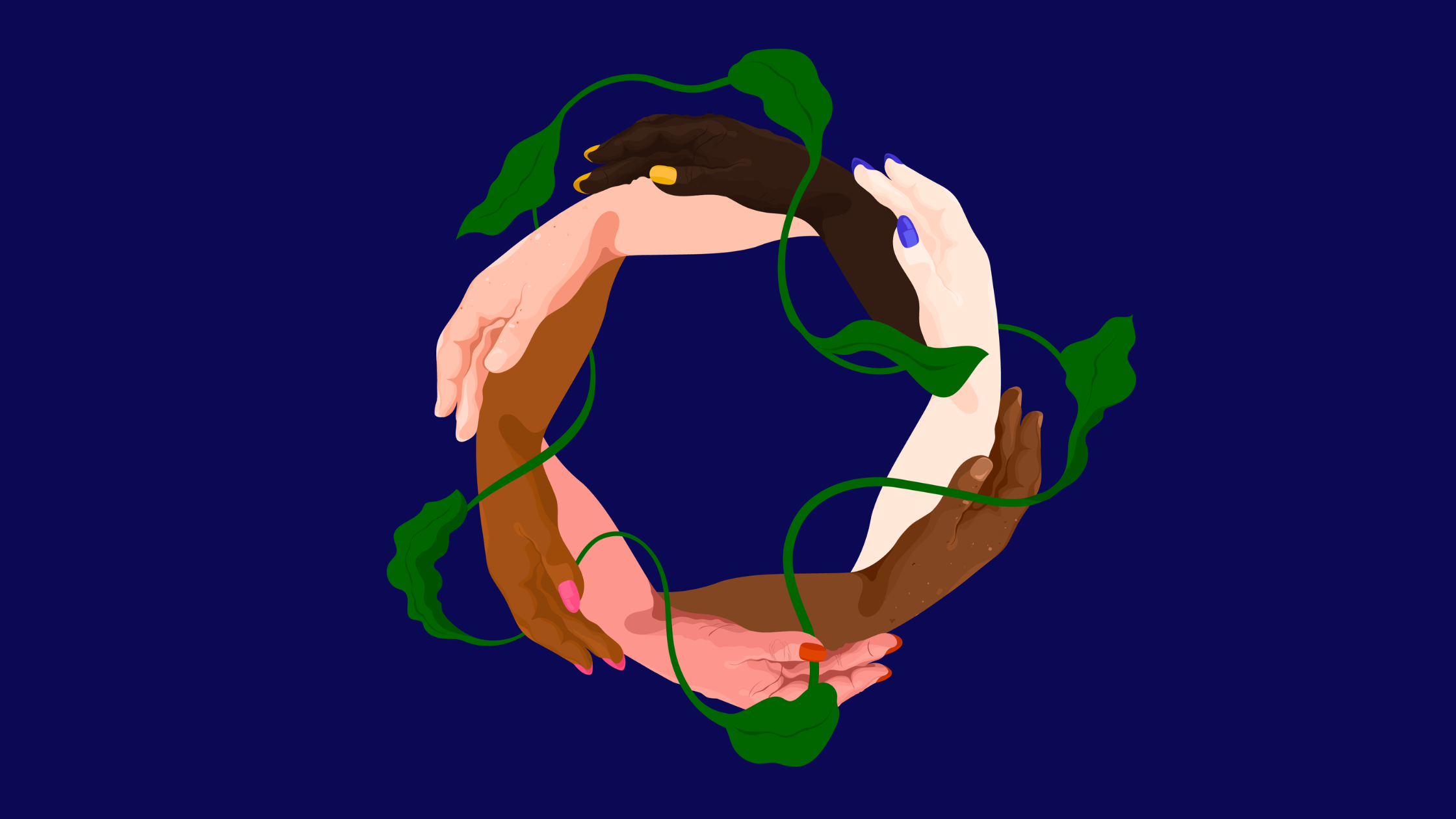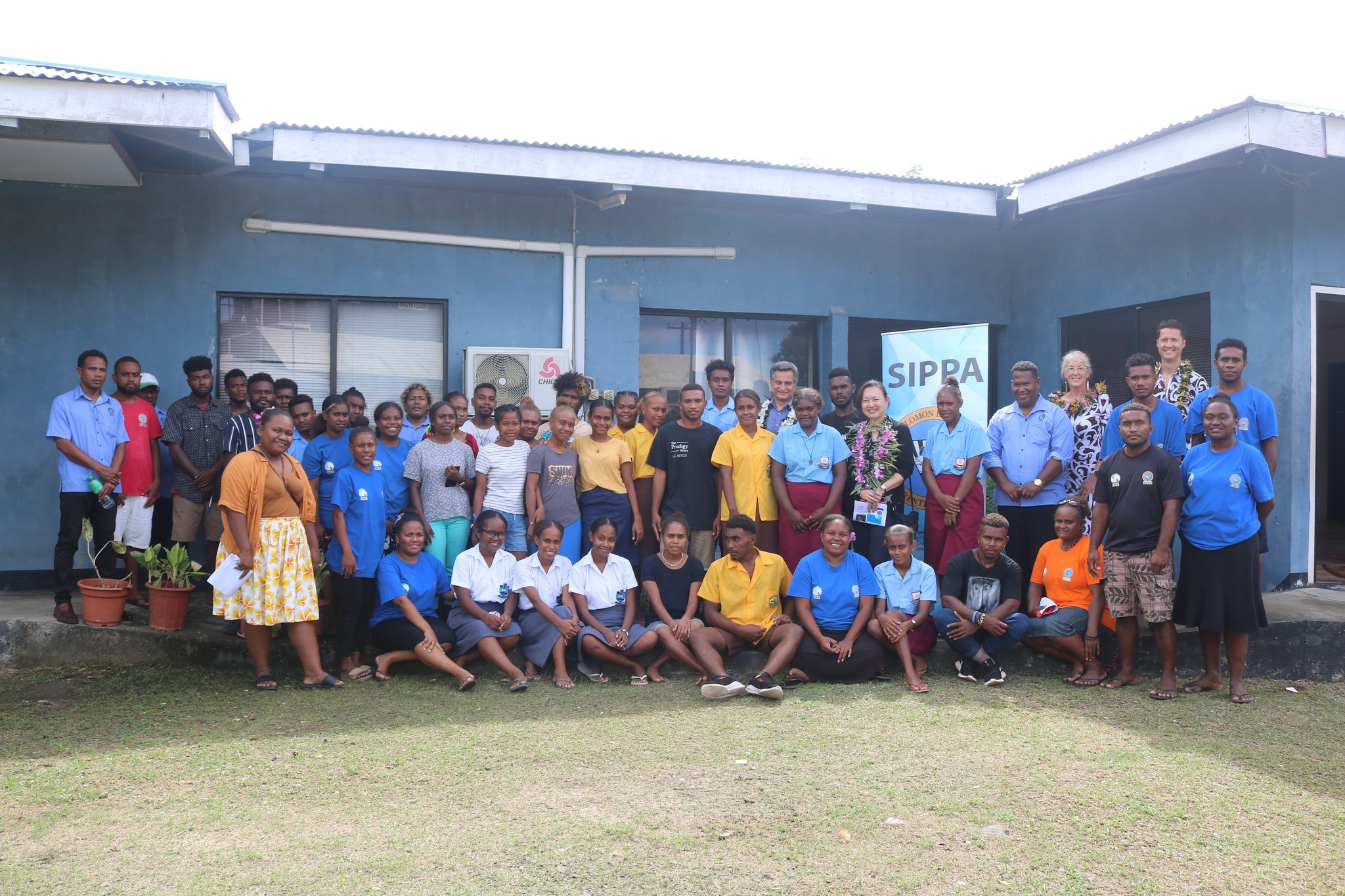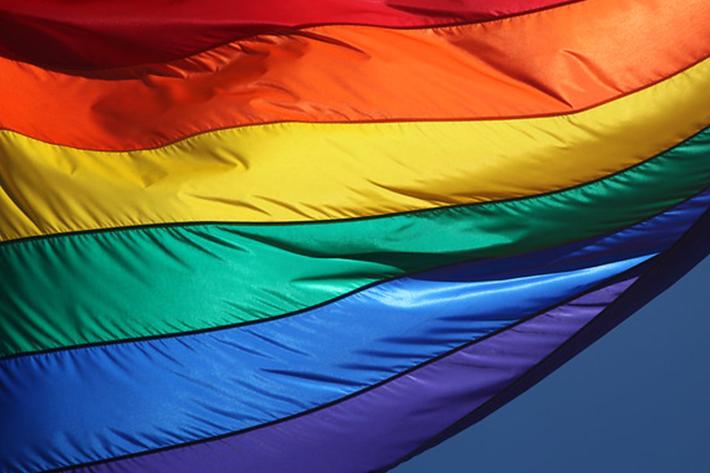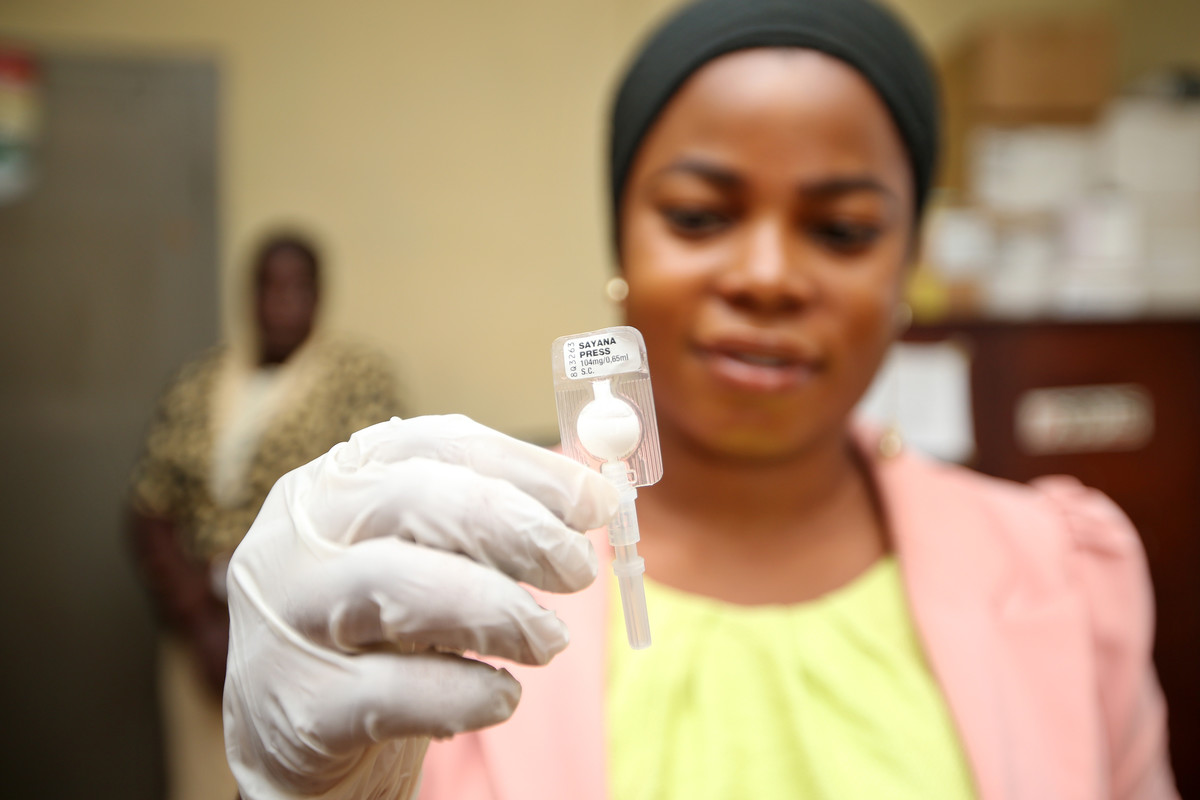
Spotlight
A selection of news from across the Federation

IPPF Statement on the 68th session of the Commission on the Status of Women (CSW)
IPPF welcomes the agreed conclusions of the 68th session of the Commission on the Status of Women (CSW), on the theme of “Accelerating the achievement of gender equality and the empowerment of all women and girls by addressing poverty and strengthening institutions and financing with a gender perspective”. IPPF actively engaged in the process by providing technical inputs to Member States, raising awareness about the interlinkages between SRHR, poverty, gender equality and the empowerment and human rights of all women and girls.
Filter our news by:


| 11 August 2023
Australia's New International Development Policy Sets out a Clear Pathway
Australia’s new International Development Policy was launched this week with a focus on building a peaceful, stable and prosperous region. Announced as the first long term development strategy in almost a decade, it was welcomed by those in the development sector. In contrast to the former government, Australia’s Foreign Minister has committed to rebuilding their ODA budget. While this is likely to be a slow build, with no ODA/GNI targets set, the new policy sets out a clear pathway. IPPF welcomes the policy’s approach to localisation, the strong focus on climate resilience and humanitarian action, the commitment to gender equality and LBGTQI+ rights and the ongoing support for sexual and reproductive health and rights. The new policy has a strong focus on Australia’s role as a development partner in the region. While the geographic focus remains unchanged, the approach is quite different. At the launch, Minister Wong highlighted the importance of sovereignty, where ‘each country can determine its own fate’. In practice for DFAT, this will mean greater accountability at post, more collaborative development of country Development Partnership Plans, more frequent progress reviews and a greater emphasis on implementing learning from evaluation. It also translates to greater investment in local solutions, including funding to support partner governments, local procurement, and civil society. The announcement of a new Civil Society Partnership Fund was well received, although details are lacking. The other underlying theme which differs dramatically from previous aid policies is climate change, recognised by the Minister as the greatest shared challenge for the region. DFAT plans to increase climate investments and better address climate risk with a target that half of bilateral and regional investments must have a climate objective by 2024-25, increasing to 80% by 2028-29. The policy also references a new humanitarian strategy, which will complement the aid policy and is due to begin consultation in September. Inclusion is a high priority within the policy. Minister Wong highlighted the importance of a region where ‘all can thrive and reach their potential’. Three focus areas for inclusion are Gender Equality, Disability Inclusion and LGBTQI+ rights, with supporting strategies in development, due for completion by the May budget 2024. The government is reinstating the target for 80% of development investments to address gender equality and a new requirement for investment over $3m to include gender equality objectives. While health is not a focus area within the policy, it was mentioned as part of infrastructure programming. The policy notes the vulnerability of many health systems in the region and Australia’s continued role to strengthen capacity and support prevention and response for both infectious and non- communicable diseases. There is also a commitment to expand universal health coverage and a specific mention of support for sexual and reproductive health and rights. Resourcing for international development is explored in detail. Responding to the findings of the Development Finance Review and recognising the limitations of ODA funding, the policy proposes an increase in blended finance, and an investment of up to A$250m to leverage private investment. This will be supported by a new unit in DFAT to work with philanthropy and impact investment. The policy also highlights changes to reporting and accountability within DFAT, greater transparency of results, and increased investment in DFAT development capability (36.8m announced in the May budget). Since the integration of AusAID into DFAT in 2013, international development has been a low priority in Australia, undervalued and diminished through multiple budget cuts. The Albanese government has promised something different. While the lack of an ODA funding target is disappointing, this policy is a step in the right direction. The recognition of shared challenges and shift towards genuine engagement highlight an understanding of the value of development work, not just for beneficiaries but for the region as a whole. Together with DFAT’s investment in development capability and shift to a whole of government approach and Minister Wong’s outspoken commitment to the 2030 Agenda for Sustainable Development there are strong indications that Australia is taking development seriously. As recipients and partners of the Australian International Development program, IPPF look forward to supporting the roll out of the new Australian International Development Policy, consulting on the strategies and participating in the design of new programs. We hope to see the collaboration continue and the funding match the ambition. IPPF works closely with the Australian government and is funded through the Department of Foreign Affairs and Trade to integrate sexual and reproductive health and rights (SRHR) into humanitarian preparedness response and recovery through SPRINT; to restore services, particularly to marginalized populations impacted by COVID-19 through RESPOND and to support the ambitious Pacific Niu Vaka Strategy Phase 2, enabling quality SRHR to be realised for everyone in the Pacific. To read the full policy, click here. Cover illustration by Edinah Chewe for The Greats.

| 28 March 2023
IPPF’s Director General Visits Solomon Islands and Australia
The Director General of the International Planned Parenthood Federation (IPPF), Dr Alvaro Bermejo, is in Australia this week for high level meetings with Australian Government Ministers and the Australian Department of Foreign Affairs and Trade (DFAT). He is joined by Ms Tomoka Fukuda, Regional Director of IPPF’s East and Southeast Asia and Oceania Region (ESEAOR) and Ms Phoebe Ryan, IPPF’s Chief of the Australia and New Zealand Office. In Australia, Dr Bermejo has been privileged to meet with Australia’s Minister for International Development and the Pacific, the Hon Pat Conroy. Together, they discussed how Australia can play a leadership role in advancing sexual and reproductive health and rights through Australia’s international development cooperation.

| 18 August 2022
Ugandan LGBTQI+ organization banned by government
On 3 August 2022, the Ugandan National Bureau for Non-Governmental Organizations unfairly halted the activities of Sexual Minorities Uganda (SMUG) – a prominent lesbian, gay, bisexual, transgender, and queer (LGBTQI+) rights organization – for failing to meet the bureau's registration requirements. SMUG has provided sexuality education and advocated for LGBTQI+ healthcare since 2004 and is well-known for providing services and guidance to the LGBTQI+ community in Uganda. The organization also contributes to Uganda's health goals, including the country's HIV/AIDS strategy, which includes the provision of healthcare to vulnerable and marginalized populations. Although SMUG applied to the Uganda Registration Services Bureau (URSB) in 2012, the URSB declined the organization's request on the grounds that SMUG was "operating illegally", a position the organization petitioned with no positive response. In a clear case of harassment and restrictions against Ugandan rights groups working on LGBTQI+ rights, the URSB further asserted that registering SMUG's name would be difficult, calling it "undesirable and un-registrable". In response to the ban the Africa Regional Director for the International Planned Parenthood Federation (IPPF) urged the Ugandan government to review its decision to suspend SMUG and to work towards accommodating the organization's mandate of advancing the rights of the LGBTQI+ community in Uganda. Marie-Evelynne-Petrus-Barry said: "As a global human rights organization and the world's largest sexual and reproductive healthcare provider, the International Planned Parenthood Federation upholds the rights of all people, regardless of their sexual orientation. "The Ugandan government's ban of SMUG has created huge anxiety among health service providers, human rights defenders, and members of the LGBTQI+ community, who risk their lives daily so that LGBTQI+ people can access healthcare and information just as any other person would. "We ask the Ugandan government to urgently reconsider its decision to suspend SMUG and to put an end to laws and policies that criminalize, target and endanger members of the LGBTQI+ community and the organizations that advocate for their rights." Petrus-Barry added: "IPPF works to ensure that people with diverse sexual orientation, gender identity and/or expression, and sex characteristics (SOGIESC) – including lesbian, gay, bisexual, trans, and intersex people have access to the full set of human rights enshrined in international human rights laws. IPPF is willing to work with the Ugandan government and other stakeholders to ensure that all Ugandan people can access these rights without restraint." For media enquiries, please contact Mahmoud Garga, Lead Specialist – Strategic Communication, Media Relations and Digital Campaigning, IPPF Africa Regional Office (IPPFARO) on [email protected] or +254 704 626 920 ABOUT IPPF AFRICA REGION (IPPFAR) The International Planned Parenthood Federation Africa Region (IPPFAR) is one of the leading sexual and reproductive health (SRH) service delivery organizations in Africa and a leading sexual and reproductive health and rights (SRHR) advocacy voice in the region. Headquartered in Nairobi, Kenya, the overarching goal of IPPFAR is to increase access to SRHR services to the most vulnerable youth, men and women, in sub-Saharan Africa. Supported by thousands of volunteers, IPPFAR tackles the continent's growing SRHR challenges through a network of Member Associations (MAs) in 40 countries. We do this by developing our MAs into efficient entities with the capacity to deliver and sustain high-quality, youth-focused and gender-sensitive services. We work with Governments, the African Union, Regional Economic Commissions, the Pan-African Parliament, and United Nations bodies, among others, to expand political and financial commitments to sexual and reproductive health and rights in Africa. Learn more about the IPPF Africa Region on their website or follow them on Facebook, Twitter, Instagram and YouTube.

| 08 May 2017
Sayana efforts will help widen contraceptive choice for world’s poorest and neglected women says IPPF
Expanding contraceptive choices offers the potential to put power into women’s hands said the International Planned Parenthood Federation (IPPF) in reaction to the Sayana Press announcement by Pfizer BD, and the Bill and Melinda Gates Foundation, and CIFF today. IPPF is already playing a major role in the introduction of Sayana Press to increase access to the world’s most poorest and underserved women and girls. Sayana Press is offered as part of the contraceptive mix by IPPF’s Member Associations in Uganda, Nigeria, Burkina Faso and Senegal. They are doing this by providing Sayana Press at our extensive network of clinics, and by training community volunteers and government staff to give women Sayana Press in their own communities. Tewodros Melesse, Director General IPPF said; “This announcement is a great opportunity to enable women and girls who are often left behind because they are poor, unable to make decisions because of their partners, too far from a clinic or disabled to access contraception. Sayana Press has the potential to reach those who have never been able to access family planning before. We have seen that Sayana Press is popular with women in remote communities who can’t easily get to a clinic or drug shop. We are keen to see countries move towards community based distribution and ultimately, self-injections. All efforts must truly reach the last mile. Enabling women to administer in their own time and wherever they are is the only way to put power truly into women’s hands. It is a great step in helping to tackle the needs of the most poorest or neglected women and girls. But like any contraceptive, it must be offered as part of a broader mix of methods available and not favored more than others. Choice means every women and girl has the right to choose about their contraception wherever and whoever they are.” IPPF launched its annual global I Decide Campaign on family planning today. IPPF is fighting for a world where women everywhere can say "I decide". Support our call for universal access to contraception! Add your voice

| 20 July 2016
End gender based violence and HIV to ensure equity
18 July, Durban: Gender Based Violence (GBV) must be recognised and addressed if we are to end HIV and AIDS urged the International Planned Parenthood Federation (IPPF) and the United Nations Entity for Gender Equality and the Empowerment of Women (UN Women) at a panel during the International AIDS Conference Monday. The impact of HIV among women and girls in all their diversity is significant and alarming. Women’s greater physical vulnerability to HIV is compounded by social norms, gender inequalities, poverty and violence. Women living with HIV are also more likely to face stigmatisation, infertility, and even abuse and abandonment, contributing to their disempowerment. In East and Southern Africa, the risk of HIV among women who have experienced violence maybe three times higher In Uganda and South Africa studies found women who experienced intimate partner violence were 50 per cent more likely to have HIV than women who had not experienced violence. In many countries in Africa, getting married is among the ‘riskiest’ behaviour for women, where they may be exposed to unprotected sex with a husband who has multiple sexual partners, and to underlying power dynamics between men and women that prevent women from accessing condoms and then insisting on their use. Julia Omondi, a 24 year old advocate from Family Health Options Kenya (FHOK) highlighted the most common root causes of gender based violence and HIV, ‘I work with a group of 50 young girls like myself, called the 3E advocates to prevent girls from child marriage; support girls who are living with HIV to understand their rights, make parents and communities aware of the laws that protect girls from child marriage. We need to raise our voices to stop child marriage and turn the tide against HIV’. “Empowerment + Engagement = Equality” is a joint project supported by UN Women and IPPF implemented in Kenya, Malawi and Uganda to address HIV vulnerability among adolescent girls and young women by engaging and empowering them. Traditional leaders like the senior chief Theresa Kachindamoto from Malawi spoke of her role to change harmful gender related practices, she said, ‘Chiefs as custodians of culture should be at the forefront to end cultural practices that negatively affect people’s health like sexual cleansing (Fisi), chief blanket. My village is now a model for others and my fellow chiefs come to learn about the change I have brought to Dedtza district in Malawi.’ Nazneen Damji, Policy Advisor- gender equality, health and HIV/AIDS at UN Women, highlighted the recognition by global leaders on the importance of addressing GBV and HIV. “Violence, and the fear of violence, can play a major role in women’s reluctance to know her HIV status and seek care. Fortunately, the Political Declaration on HIV/AIDS adopted in June at the UN General Assembly and the Resolution on women, the girl child and HIV adopted at the 60th Session of the Commission on the Status of Women both call on governments to intensify efforts to end all forms of violence against women and girls, including harmful practices that contribute to the spread of HIV amongst women and girls” ‘Civil society organisations like IPPF play an important part in holding governments accountable. We shouldn’t underestimate our role as advocates to inform national, regional and global policies. If we are to address the dual epidemics of GBV and HIV we need to have progressive polices where perpetrators can be brought to justice and laws and policies uphold gender equality’ said Zelda Nhlabatsi, the executive director of Family Life Association of Swaziland (FLAS). The session was sponsored by IPPF Africa Region, UN Women and the Ford Foundation.














